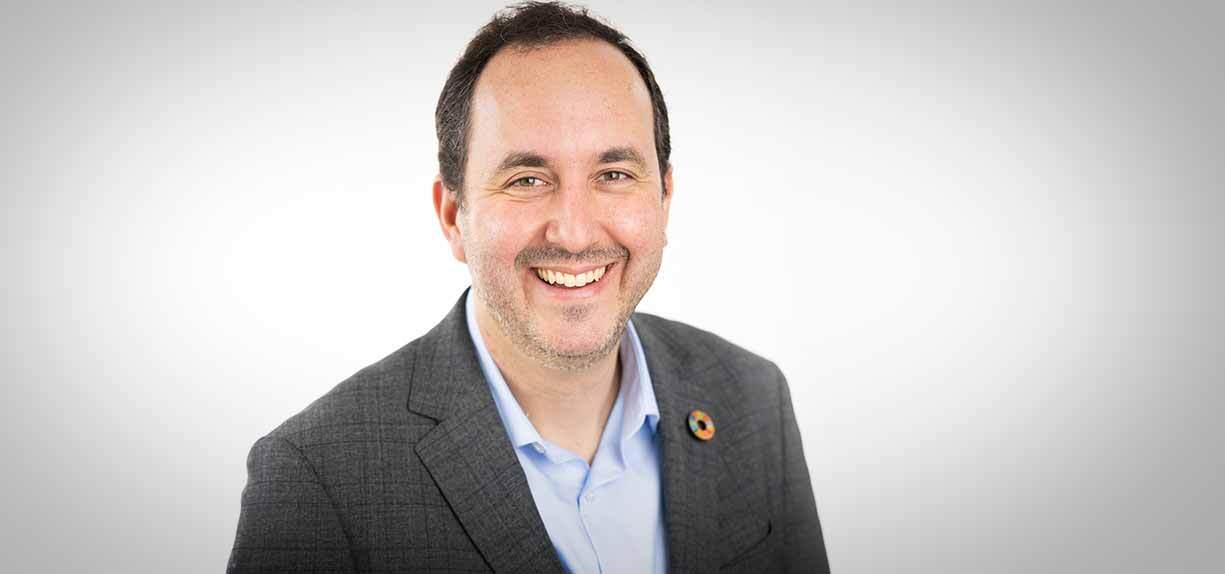Tomás Sercovich, CEO of Business in the Community looks at the importance of EESG as well as the additional logistical responsibility on companies to ensure disclosure and compliance.
With the effects of the climate and nature crisis visible across the globe, from floods to heatwaves, coupled with rising social inequality and division, everyone has a role to play to protect the planet and its people. Companies are feeling this pressure too.
In recent years, this pressure has been mounting from multiple quarters, (investors, staff, customers, public opinion) leading to an expectation of increased accountability and disclosure of their sustainability ambitions and credentials. Yet companies must be authentic in their mission to be more sustainable and inclusive, for it to be effective and guarantee longevity and profitability especially against a backdrop of ‘green-washing’ and “green-hushing”.
Gathering credible data to demonstrate this shift to more responsible business practices is a core element of the EU regulatory frameworks such as Corporate Sustainability Reporting Directive (CSRD), which many large companies are now in scope for. Many of our Business in the Community Ireland (BITCI) member companies report significant resources being shifted to ensuring disclosure and compliance to the detriment of action that will lead to change. A recent survey published in the UK by Mitie, indicated 70% of sustainability professionals believe that “increased reporting burdens are constraining their teams to the point they risk not delivering impactful programmes.”
To help with this responsibility, Business in the Community Ireland has been supporting its members (120 large companies -a mix of semi state bodies, large indigenous businesses as well as multinational corporations) in multiple ways. This includes at an individual level helping to upskill staff in all areas of sustainability though our CSRD-aligned framework of Economic, Environment, Social and Governance (EESG), through peer learning, training and workshops.
We are encouraging companies to go beyond compliance with regulatory frameworks by becoming certified with the Business Working Responsibly Mark which is Ireland’s independently audited EESG standard. The Mark fosters excellence in sustainability by establishing and continually improving the management system of an organisation. This drive for continual improvement, internal collaboration and regular reviews is the differentiator between the Mark and other frameworks. Companies certified with the Mark are eligible to join our recently established Responsible Business Association which aims for transformative change to responsible business models, focusing on leadership, knowledge sharing and support to the wider business eco-system in achieving sustainable impact.
The need to lower carbon emissions across Scopes 1,2, and 3 is ever pressing. Many companies have set long term targets to pivot their business to operate in a net zero economy by 2050. However, Business in the Community Ireland urges companies to also set realistic yet ambitious interim targets to ensure this shift is successfully achieved. BITCI has assisted our members in doing this by developing sustainability strategies and establishing in 2018 the Low Carbon Pledge, which requires signatories to set target based on science by the end of this year. Our new collective commitment, combining ambition on carbon as well as nature will be announced in the Autumn.
Lowering Scope 3 Emissions
Lowering Scope 3 emissions is proving most challenging for companies as it relates to the supply chain and customers. Establishing sustainable supply chains is vital to success. This is the reason we are pioneering, with the support of our members Bank of Ireland, Musgrave Group and SSE Airtricity, our SME Climate Action Programme. This pilot focuses on companies working collaboratively to upskill and create climate action plans. We hope this pilot will lead to more concrete action and support for SMEs to decarbonise.
For an organisation to develop and pursue a more sustainable business model it is important that the management have the required capabilities and skills to accelerate the essential transformation to a low carbon economy and inclusive society. Research published this week by BITCI, Skillnet and Maynooth University Business School, found a lack of clarity regarding the skills needed to drive sustainable change and effectively implement sustainable practices. The findings highlight the need for a constructive and collaborative response from Government and industry bodies to ensure that all necessary sustainability transition upskilling and support mechanisms are available and effectively communicated to businesses. BITCI will progress the insights, learnings and recommendations of this report with our members and key policy makers.
Looking to the Future
Looking forward to the next few years, embedding sustainable business models are no longer a ‘nice to have’ but are essential for the future viability of any company. It must encompass core elements such as remedying the impact of the business on nature and expecting suppliers to uphold the same sustainability values.
Given the current diversity of backgrounds and abilities within our schools, it must make us think what role business will play to ensure that when these students finish school, they will be able to thrive in inclusive workplaces.
The demand and pressure on companies to be more sustainable will increase over the next decade, and only those who are adapting their business models now will succeed into the longer term.
Working collaboratively, finding innovative solutions, being flexible and understanding that sustainability incorporates all EESG elements will ensure companies thrive.

